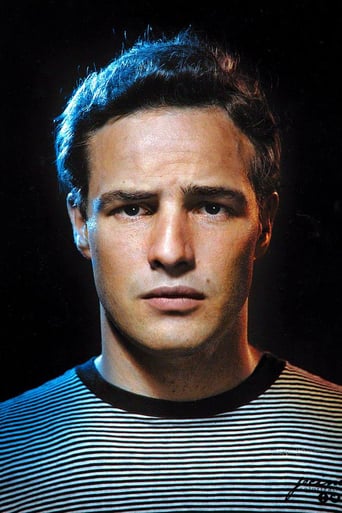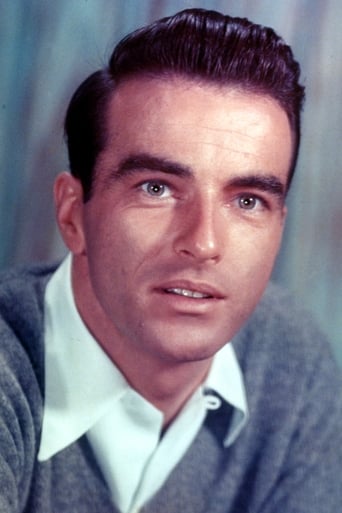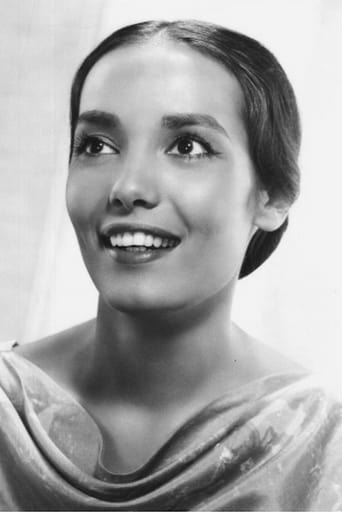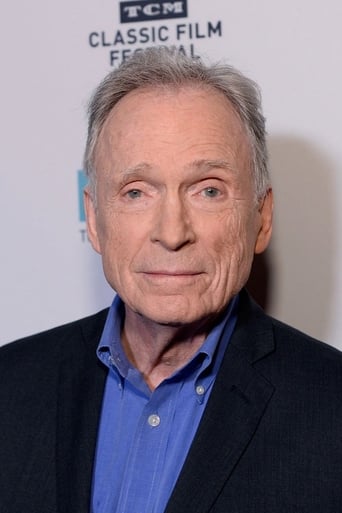Smartorhypo
Highly Overrated But Still Good
RipDelight
This is a tender, generous movie that likes its characters and presents them as real people, full of flaws and strengths.
Matrixiole
Simple and well acted, it has tension enough to knot the stomach.
Antonius Block
A fascinating look into the life of Marlon Brando, made all the more compelling and unique through its use of Brando's own private audio and rare video recordings. If you're put off early on because it seems to be jumping around and/or it's hard to hear, stick with it. Aside from seeing many examples of Brando's absolutely brilliant acting, we see a complete view of his life, with all of its triumphs and difficulties.Brando had problems with relationships, children, poor part selections, and was often a pain in the behind to his directors. That may also put people off, but I have to say, this documentary also shows just how laser sharp the man was. The same blistering honesty he brought to his acting roles, he also brought to life. He saw that acting was a means to an end – that time was the true currency of man – and after he had 'made it', he made sure to enjoy his life. He was a pillar of moral rectitude during the Civil Rights movement, standing up for African-Americans and later also for Native Americans. He saw through the phoniness and profiteering in the world, and sought to live his life simply in Tahiti and elsewhere. He had a difficult childhood and relationship with his father, and yet reached a point of forgiveness, understanding that his dad was a product of his own upbringing, and so on, and so on.Despite the maelstrom of chaos and occasional controversy in his life, what emerges is the coherence of Brando's honesty and his moral code. He humiliated himself by taking parts that were ridiculous and which he later regretted, but if you put that into the context of his life and his priorities, you'll empathize with him, and will be far less prone to laughing at him. I was aware of all the elements of his story, but this documentary really brought it all together for me, and left me admiring the man even more. He was a true hero, a brilliant actor with a social conscience and an intellect that should is under-appreciated.In terms of the documentary, there are some elements that are less effective. The scenes showing his crude digitized likeness. The audio when it's hard to understand, and which would have been helped with subtitles (turning on close caption helps, even if you're not hearing impaired). The less than even storytelling, though it's always the case that a biographer must choose what to leave in, and what to leave out. With all of that said, director Stevan Riley delivers, and there will be things in this documentary for everyone, regardless of how much you come in knowing about Brando. Strong film.
Izzy
Magnificently captivating. Marlon Brando in his own words, talking about his difficulties, his regrets, his mistakes, the moments of tranquility in his life, he comes back to life in this film. It is beautifully made and made me tear up at the end. It is astonishing how a man like this had a life filled with so much hatred and hardships and still managed to become someone we all want to aspire to become in our own lives, unapologetically honest and full of thoughts and experiences. This is more than just a bio-documentary, this is a window into a man's life, someone who was very private and not open with a lot of people, the way fame had changed and affected his life and how he felt about the choices he made in his life. It truly is a masterpiece, no other way to explain it.The way the documentary is structured gives you a detailed and straight forward look into what Marlon Brando felt every step of the way, how the media treated him, how actors and directors felt about him and how he felt about the industry and acting as a whole. It really makes you question when something you love doing becomes a soul draining necessity in your life you cannot run away from when everything you wanted seems to be getting further and further away. One of those films that once you see it, it's hard to get out of your head. If you respect the art of filmmaking, the art of understanding people and especially Marlon Brando, please watch this film, It taught me so much and I have learned a lot from this film. It gives you a satisfying but gut-wrenching feeling at the end, the whole film makes you feel all sorts of emotions and makes you see deeper and deeper into his mind. I love this film, probably my favorite documentary so far, I definitely recommend this film, a man like Brando deserves to be appreciated and listened to and this film gives you all. A definite 10/10.
MisterWhiplash
Marlon Brando was, to say the least, a somewhat enigmatic figure in the public eye for many years - notwithstanding (or because directly of) reports from set or that time he was on Larry King, he could be beautiful, compassionate, difficult, weird, crazy, tragic (re: his kids and what befell them/they did), bizarre, provocative, secret, shy, BIG, and so many things, but above all a box of contradictions. These get to be seen on a bigger canvas and some added context with Listen to Me, Marlon, a documentary that uses (mostly) audio-recorded bytes from Brando as he spoke into a tape recorder for many years, whether it was preparing for a role (as we hear for Apocalypse Now and Last Tango in Paris), self-hypnosis (he had to meditate a lot one can see), and just stuff to leave behind for his kids. From 198 hours (!) of recordings director Riley gets a lot of interesting facts and opinions and takes on life, acting, parents, his kids, Tahiti, and the directors he worked with and roles he made flesh.The contradiction at heart of Brando's career, though it probably extends to his personal life as well, is that he took his craft very seriously - the "method" style and its popularity came by and large from Brando in the 50's via Stella Adler and Stanislavski to use 'real' emotions felt over time to inform the performance - and yet after a short time of making (really) a classic set of films in the 50's, quickly became disenchanted/disillusioned by the process. He's on record here of saying things like 'I've never been in a 'great' movie and there's no such thing as a 'great' movie' and that finding any sort of "art" in it is ridiculous as it's all about money and merchants peddling their works. He may have a point but at the same time undercuts that by how seriously he took digging in to someone like Stanley Kowalski (who was not someone he could identify himself with) or Vito Corleone (who he wanted to give some dignity to as a gangster) or Colonel Kurtz (albeit he perpetuates the myth that Coppola didn't know what he was doing at all until he stepped in, but there's another documentary to see about that whole story of course).So he felt conflicting things about cinema, and yet cared a lot about civil rights and the rights for Native Americans (the notorious moment where he sent Littlefeather to get the Godfather Oscar is still awkwardly funny and touching at the same time). He was a lot of things, but what's impressive about the documentary is how the director is able to tap into many different things and weave together a complete portrait from just over an hour and a half of clips out of 198 hours. While he does overdo some of the music cues (near the end there's opera singing for Godsakes), there's such a wealth of emotions and perspectives given that incidents like the ones with his kids - when Christian was kidnapped at 13 and then, as an adult, convicted of murder involving his half-sisters boyfriend - make him appear very flawed and all the more human for it.Though not altogether fully great (maybe it could've stood being even longer, like there's only so much time so here's the Greatest Hits), I felt like I got a lot of out this, almost like a Citizen Kane if all of the takes were from Kane examining his life and work himself. And it provides a good lesson not just for actors but people in general: pay attention to his you "act" in life, as everybody does it and it's both not special and the most important thing in what you do, whether it's on camera or (especially) off.
edwagreen
Marlon Brando's most frustrating life recorded on tapes. Those eerie pictures of him with that frozen head;in certain pictures he even looks like Thomas Jefferson with that pony tail.No question about it, Brando proves that there is a fine line between sanity as compared to insanity. Growing up in a household dysfunctional by its alcoholic parents, is it any wonder why Brando's frustrations grew way into adulthood.He was a brilliant actor by studying Stella Adler's method of acting,which had a great impact on his life.While we see him in clips of "Streetcar Named Desire," we see the clips with Viven Leigh; we see acting by both at its brilliant best. Acting to Brando was a way out to vent his frustrations and inability to cope.The black and white cinematography creates an eerie setting, as Brando frustrated and often off-the-wall seeks clarification and justification for his life.







